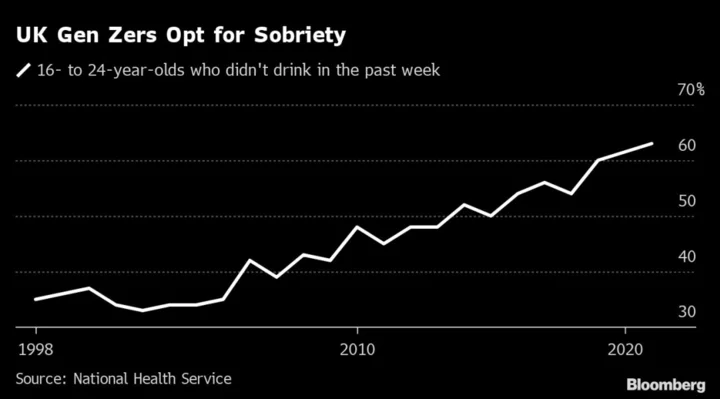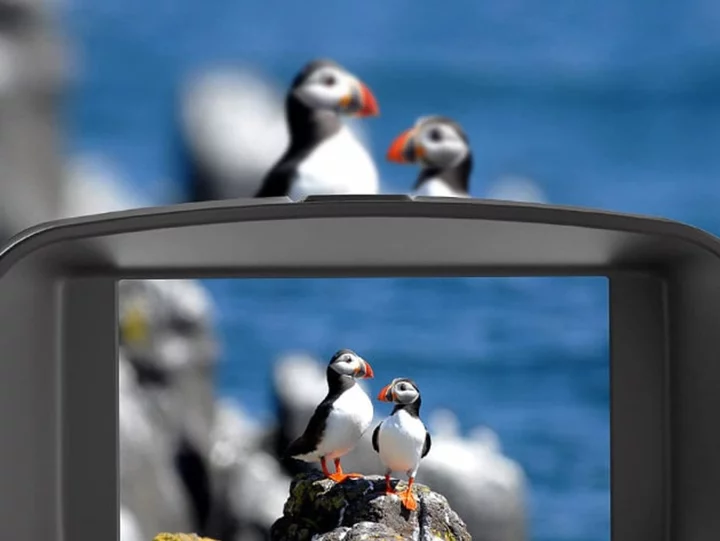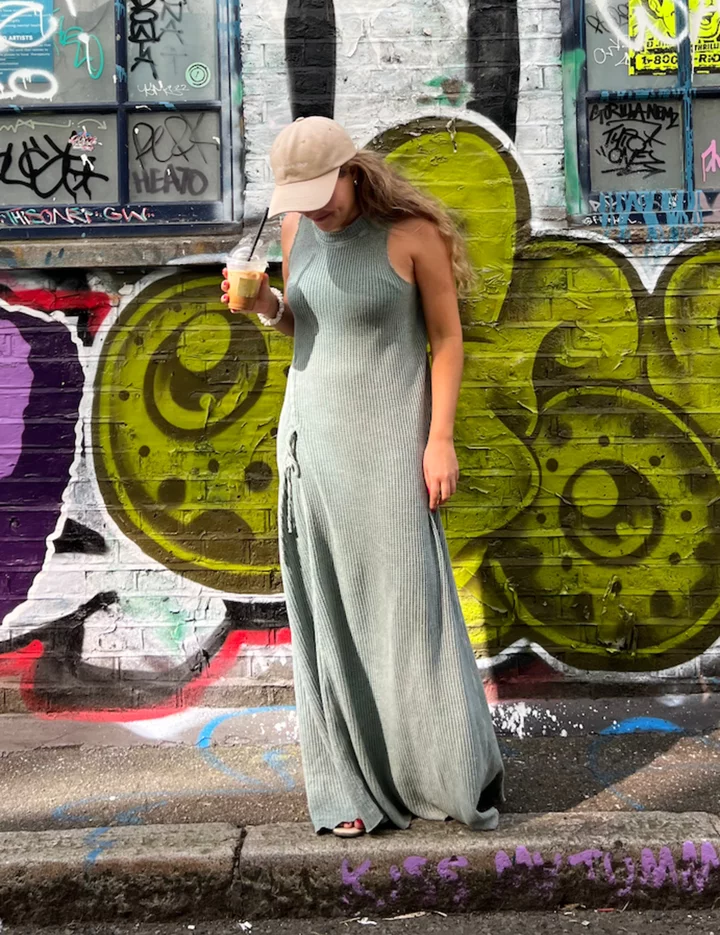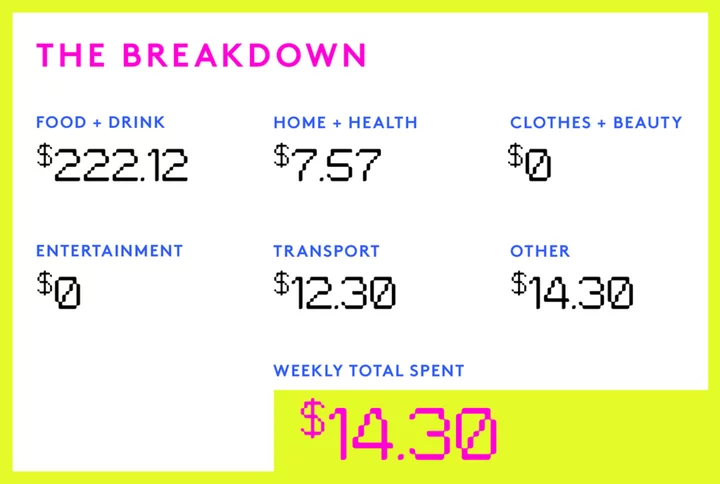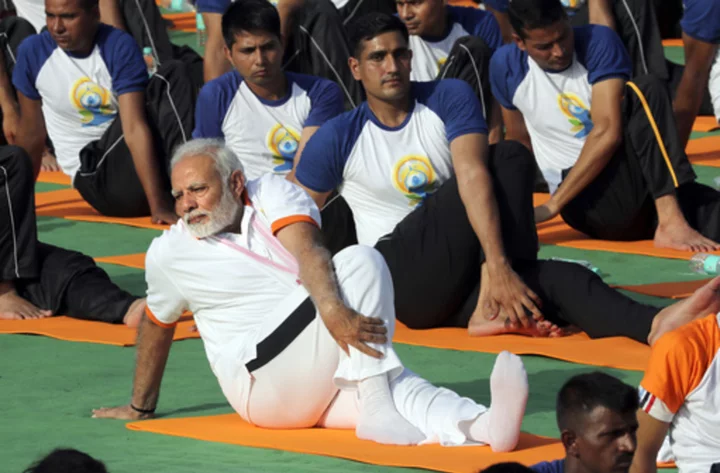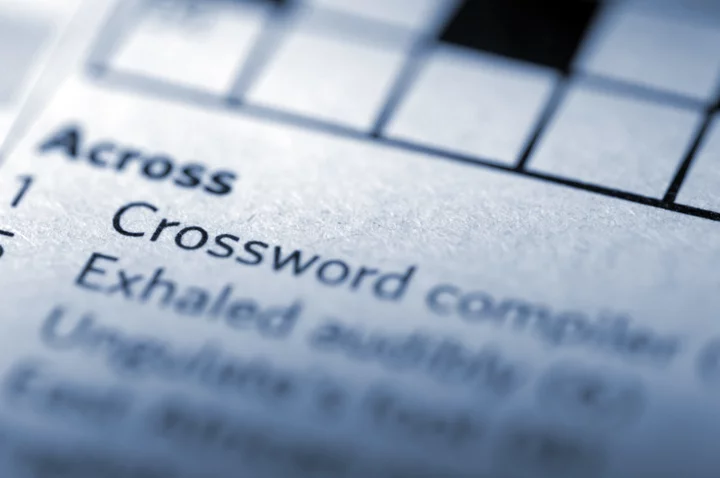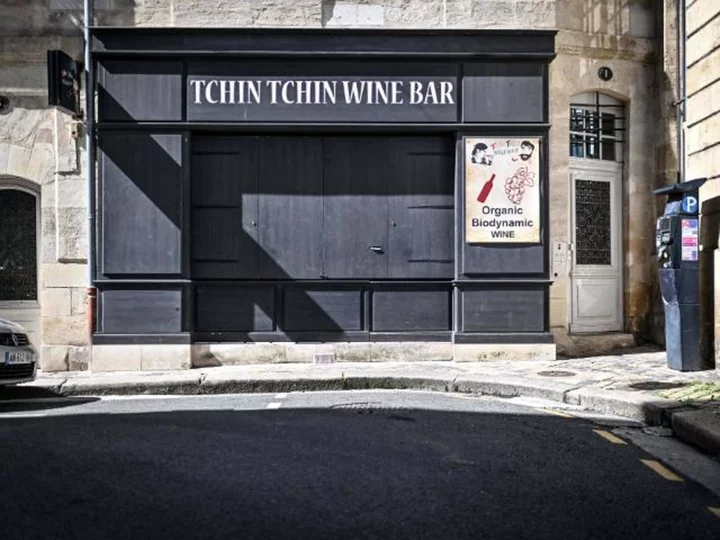From the outside, Club Soda looks like any number of London liquor stores with row after row of colorfully labeled bottles.
But the narrow white storefront is actually a pioneering place in the midst of the booze-loving city: It’s London’s first alcohol-free beverage shop. Zero-proof beers, spirits and wines are all available for customers to take away or sample at the little bar.
“People are looking for places where they can find nonalcoholic options and meet like-minded people,” says co-founder Laura Willoughby. “We’re part of that trend.”
Club Soda started as an online community in 2015 for sober people looking to socialize outside Alcoholics Anonymous meetings. The first permanent location opened near from Covent Garden last November. Since then, it’s been drawing crowds.
Read More: Even in Boozy UK, Gen Z Is Embracing Sobriety
UK culture is still very much centered around pubs and drinking. A 2022 YouGov survey found that only 18% of Brits over the age of 18 don’t consume any booze. Alcohol still dominates its zero-proof competition in terms of sales: In 2022, Brits spent £19.3 billion ($25.3 billion) on it, compared to £205 million on nonalcoholic products, according to Nielsen UK.
Read More: The Shrinking Martini Is Taking Over London
But a growing number of people—particularly Gen Z and millennials—are embracing the benefits of sobriety. About 38% of 16- to 24-year-olds in the UK didn’t drink at all in 2021, according to a National Health Service (NHS) survey, twice the rate of that population a decade ago.
Restaurants, pubs and grocery stores are paying attention. About 85% of UK pubs—around 39,000 venues—now offer at least one low- or no-alcohol beer. Earlier this year, Asahi launched a zero-proof version of its Super Dry brand in the UK; in March, the popular alcohol-free beer brand Lucky Saint opened its first eponymous spot in London.
But Club Soda is the first place in London where you won’t find any alcohol. At the small and unassuming shop, customers can select from an array of about 150 bottles, including the organic bubbly French Bloom that goes for £30. There are also canned mocktails ranging from passionfruit mojitos to cosmopolitans (£2.5 each) and botanical-based “mood enhancers,” like Three Spirit’s Social Elixir, whose taste evokes Jägermeister.
Pun-heavy mixologist inventions are available at the bar in the back, including Things Can Only Get Bitter, a bittersweet citrus-and-orange mocktail made with a gin alternative. Also available are Noughty Rosé for £6 a glass and 0 ABV spritzes for £6.5.
Club Soda is not just a place to buy drinks, though: It’s also designed for socializing both in person and virtually. The third Thursday of every month is “Queers Without Beers” night. There are mocktail masterclasses. Customers can also bring a date and experiment with the terrifying idea of “sober dating.”
Chelsea Dowman of West London has been to Club Soda three times since its opening. On a recent visit, the 29-year-old, who’s been sober for almost a year, bought several products including the zero-proof spirit Sentia and prosecco. “When I quit alcohol, I thought I wouldn’t find anywhere grown-up to go into and browse alcohol-free options,” she says. “But this place is so nice and convenient. It’s a great addition to the city.”
About 2,000 visitors pass through Club Soda’s door every month. More than 14,000 people have taken part in the online courses, and close to 50,000 people have signed up to be Club Soda members. The shop’s popularity is growing: Willoughby says sales in April, the latest data available, were higher than during Dry January.
“The no-alcohol trend has gone well beyond niche in the last few years,” says Andrew Misell, director at the charity Alcohol Change UK. “The younger generation is much more accepting of sobriety and moving away from the idea that alcohol is cool.”
Apps, social groups and events are proliferating among the growing sober culture, from “dry” phone apps to stay on track with sobriety to “no-booze” cruises, sober hiking and alcohol-free raves.
The abstaining-from-alcohol trend is even more pronounced in the US, where a lot of sober-curious movements took root. Boisson opened one of New York City’s first alcohol-free liquor stores two years ago; it’s quickly expanded to nine locations in New York and California with one opening soon in Miami; they also ship beverages nationwide.
“A lot of people are trying out low-alcohol drinks to improve their health,” says Millie Gooch, founder of online community Sober Girl Society. “They’re aware of how alcohol impacts mental health and can lead to anxiety or depression. They want to avoid that.”

